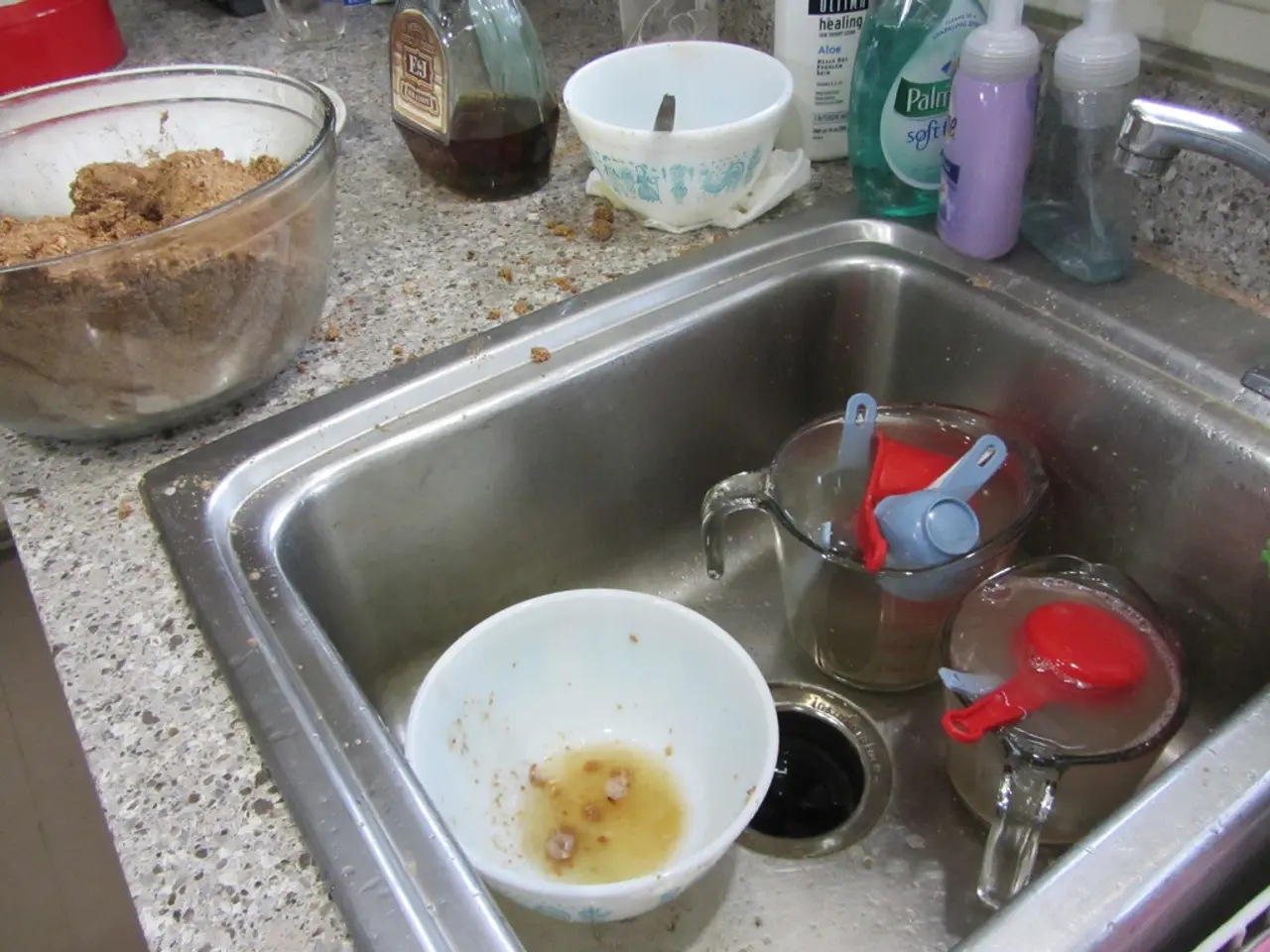Diarrhea experienced by travelers: Origins, remedies, and precautions
Traveling to foreign lands can be an exciting experience, but it also comes with its own set of health risks. One such risk is Traveler's Diarrhea (TD), a common travel-related illness caused by the acquisition of a gastrointestinal infection from contaminated food or water [1].
To minimize the risk of TD, it's essential to take some preventative measures. The most effective methods include careful selection of food and beverages, the use of certain medications, and supportive probiotics.
Firstly, avoiding contaminated food and water is crucial. This means avoiding tap water, ice cubes, raw fruits and vegetables, and uncooked meat or seafood. Instead, drink bottled or boiled water and eat thoroughly cooked foods to minimize the risk of ingesting pathogens [1][4].
Secondly, Bismuth subsalicylate, the active ingredient in Pepto-Bismol, can reduce the risk of TD by about 50% [1]. This over-the-counter medication increases fluid absorption and reduces inflammation in the stomach. It is especially recommended in high-risk areas like Mexico and Central America [1].
Thirdly, probiotics, especially Saccharomyces boulardii, can help maintain a healthy gut flora and reduce the severity and duration of traveler’s diarrhea. Saccharomyces boulardii is a heat-resistant probiotic strain that has been shown to help prevent TD by combating harmful bacteria and supporting digestive balance [1][3].
Good hygiene practices also play a significant role in reducing the infection risk. Maintaining hand hygiene and being cautious about food handling can significantly lower the chances of contracting TD [3].
Routine antimicrobial prophylaxis (using antibiotics preventatively) is generally not recommended due to risks and resistance concerns, although some antibiotics like rifaximin or doxycycline may be used in certain high-risk travelers under medical advice [2][4].
In more severe cases of TD, a person may require medications that target the causative agent, such as antibacterial drugs for E. coli infections. Symptoms of TD may include frequent loose stools, nausea and vomiting, fever, abdominal pain and discomfort, stools containing blood or mucus [1].
Health experts define traveler's diarrhea as 3 or more loose stools in a 24-hour period during a trip abroad to a country with different hygiene practices. TD can occur anywhere, but the highest-risk destinations include Asia, the Middle East, Africa, Mexico, Central America, South America [1].
Some vaccines, such as Dukoral, may help prevent people from experiencing TD [5]. Practicing good hand hygiene by washing hands with soap and water or hand sanitizer can also help prevent TD.
In summary, the primary and most effective prevention methods are careful selection of food and beverages, use of bismuth subsalicylate, and supportive probiotics like Saccharomyces boulardii [1][3][4]. It's always important to consult with a healthcare provider before traveling to understand the specific risks and precautions for your destination.
[1] Centers for Disease Control and Prevention. (2021). Travelers' Diarrhea. https://www.cdc.gov/travelers-diarrhea/index.html [2] World Health Organization. (2020). Travelers' Diarrhea. https://www.who.int/news-room/fact-sheets/detail/travelers-diarrhoea [3] Mayo Clinic. (2021). Traveler's diarrhea. https://www.mayoclinic.org/diseases-conditions/travelers-diarrhea/symptoms-causes/syc-20355765 [4] National Health Service. (2021). Traveler's diarrhoea. https://www.nhs.uk/conditions/travellers-diarrhoea/ [5] Dukoral. (n.d.). Travel Vaccines. https://www.dukoral.com/en-us/travel-vaccines
- To mitigate the risk of Traveler's Diarrhea (TD), a common health risk during travel, careful selection of food and beverages is essential, avoiding tap water, ice cubes, raw fruits and vegetables, and uncooked meat or seafood while ensuring consumption of bottled or boiled water and thoroughly cooked foods.
- The over-the-counter medication Bismuth subsalicylate, found in Pepto-Bismol, can reduce the risk of TD by about 50%, especially in high-risk areas like Mexico and Central America, by increasing fluid absorption and reducing inflammation in the stomach.
- Maintaining a healthy gut flora and reducing the severity and duration of TD can be achieved through the use of probiotics, such as Saccharomyces boulardii, a heat-resistant probiotic strain that combats harmful bacteria and supports digestive balance.
- In more serious cases of TD, medications that target the causative agent, like antibacterial drugs for E. coli infections, may be required, and it's important to consult a healthcare provider for specific advice and precautions before traveling.




